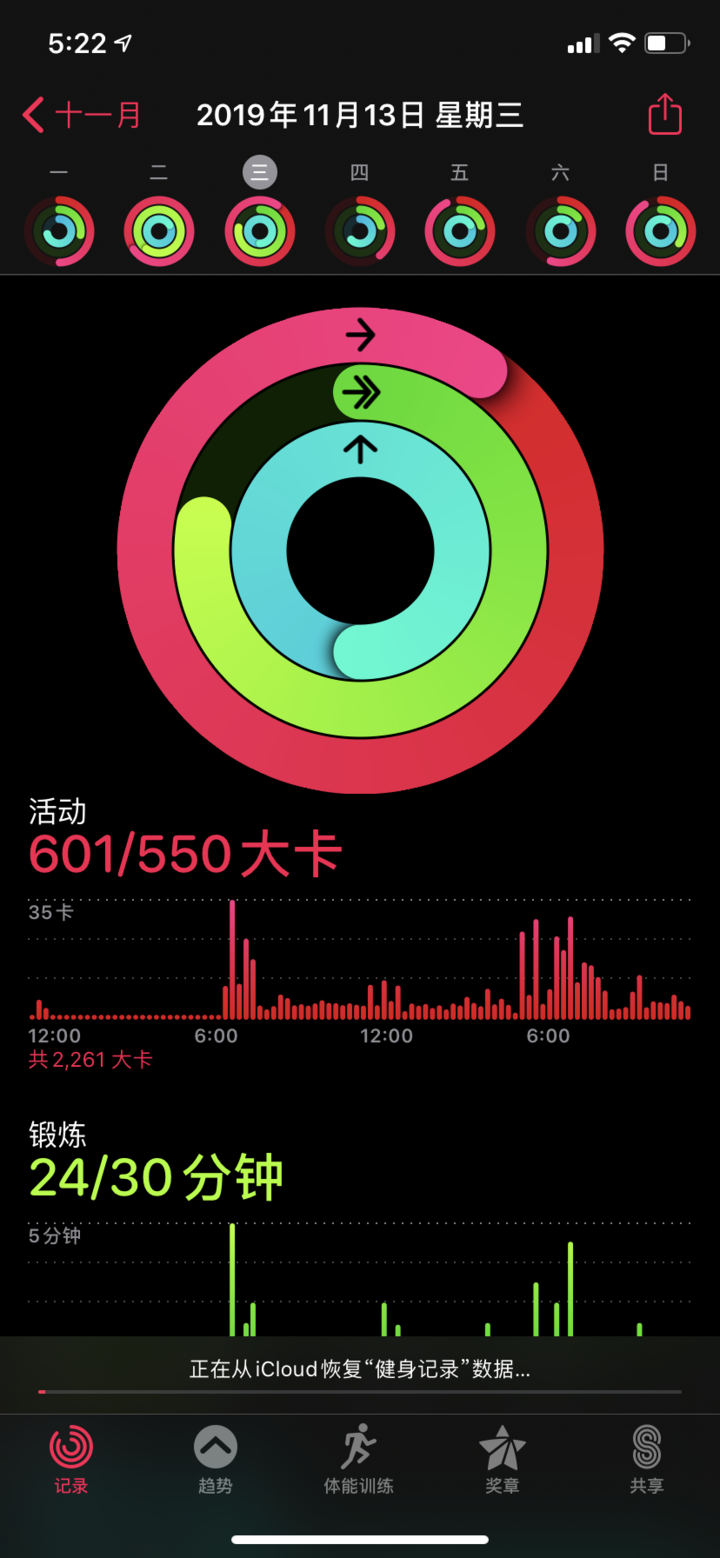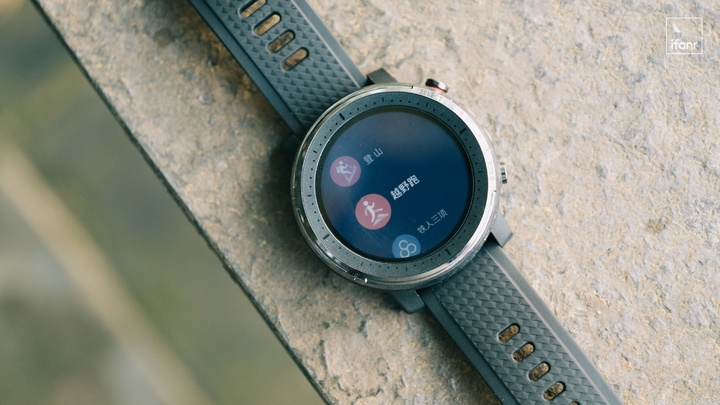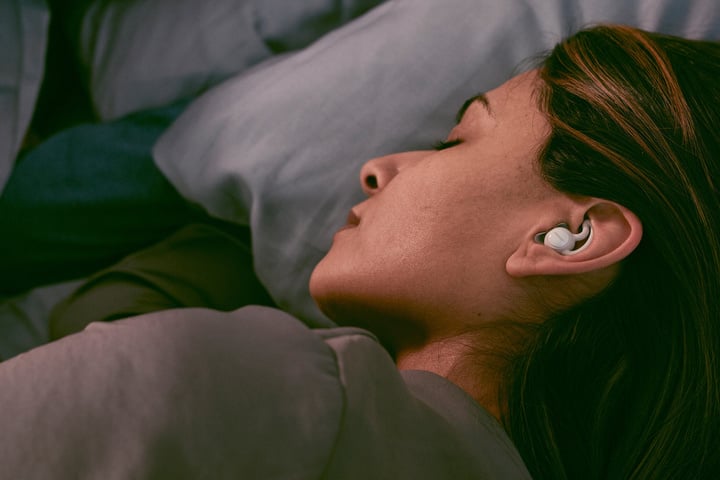Do you think smart watches can really manage your healthy life?
When various brands are launching smart watches, some people wonder how much this gadget on the wrist can affect a person’s life? Can it really make a person live a healthier life? With this question in mind, I experienced the wearing and use of smart watches and felt the health management function of smart watches purely from the perspective of ordinary users.
First, let me conclude that for me, smart watches are useful for health management, but they are not very useful, and I still know how unhealthy I am.
You can’t go to bed early, get up early or exercise regularly when you buy a smart watch
Smartwatches have really changed me very little. Change mostly focused on reminding me to stand, breathe, and move when it vibrated slightly. Whenever this time, I will do what it says, go to the window and rest for a while. Because this is for writing and experiencing, every time I go to the window and watch the green plants, there is also a special kind of happiness of “fishing for the purpose”.

But the validity of this “intention” is limited. After a week, I wouldn’t necessarily go to see it even if the watch on my wrist shook twice. After all, the freshness is too great. If the watch shakes when writing, it will become “harassment” for me. In the next few weeks, I will take a deep breath or get up and do some exercise at my watch’s will only when I am also free.
It ’s not bad for me to let my watch vibrate. Many people around me have turned off the alert option to avoid “harassment”. It’s like using drinking water, to-do apps, they remind you of the same day after day, but your mood is changing. When the initial goal was gradually forgotten, the smart watch became an annoying existence.
In addition to occasionally reminding you to get up, the wisdom you wearThe watch can also set exercise goals for you. For example, the Apple Watch hopes that I consume 550 calories per day of activity, and closes the three rings of activity, exercise, and standing together. The watches from other camps will also set me goals such as steps, calories and other dimensions.

What do you do with these healthier goals that obviously make your life easier? My approach is to ignore it. As long as I don’t look at it, the goal doesn’t count as my failure.
In fact, unless you are determined to maintain a healthy and regular schedule for the rest of the day, it is difficult to rely on a watch to push you to exercise. Just like banks and insurance launching healthy walking activities, the original intention is that you want to do more exercise and increase the activity of its applications, but it is more the hot selling of Taobao walker and step change service.
On the contrary, people who really want to exercise, even without a watch or bracelet, have to go back and forth around the house at 11 o’clock in the evening, and must make an average of 10,000 steps per day. It can be seen that tool assistance can only serve as a reminder. Whether you can succeed or not depends on yourself.

The same goes for “sleep”.
You finally know if you are sleeping well, can you lose weight by exercising?
For me, the most useful thing about wearing a smart watch is the fact that you don’t sleep well.
Before wearing a smart watch, I always felt that my need for sleep was far more than ordinary people. Otherwise, why would I sleep for eight hours at night and still be sleepy at noon? This must be because I was chosen by the God of Sleep, and Zhou Gong also liked my intelligence and cuteness, so I wanted to see me more.
After wearing a smart watch, I found out that I am a low-quality sleeper whose sleep quality is defeated by 99% of the nation. I used to feel that I had a long sleep time, mostly falling asleep at 23 o’clock and waking up at 7 a.m., I always had the impression that I slept close to 8 hours at night. In fact, I go to bed almost every day, get up at 6 o’clock, and sleep less than 6 hours a day.
Sleep time is severely insufficient, and the quality of sleep is not much better. Smartwatches let me know for the first time that my deep sleep in a day is only 23 minutes. Even if I don’t have enough knowledge about sleep, I know that the longer the deep sleep, the better.

After the watch reminded me that the deep sleep time was too short, I first learned about deep sleep. It is called “golden sleep” and accounts for 25% of the entire sleep time. The quality of sleep is closely related to the length of deep sleep.
From my average sleep of 6 hours a week, deep sleep should have an hour and a half. But the bloody reality tells me that my deep sleep market is less than one-third of the standard, which is why I am always tired and not sleep enough.
I was immediately stimulated to find out how to improve my deep sleep time. The answer was moderate exercise, do n’t eat enough before bedtime, relax as much as possible. I did one by one (experimental), and on the same day I rode the company’s bicycle and sweated for 20 minutes. After eating, I was full, and I played light music before going to bed. The next day, I had a deep sleep of 43 minutes.
During this day-to-day effort, my deep sleep finally exceeded my sleep time by 25%. But what followed was giving up. It was too tiring to do so much preparation for sleep every day, and it was too difficult for me to exercise moderately. Of course, after I gave up, the deep sleep time was reduced again.

Although I give up, I wake up sleepy every day. I will go to see the length of deep sleep for the first time. Short time is the norm. Long time has a lot of happiness.
Another benefit of smartwatches is that you get instant motion feedback. Although I am a person who does not like sports, I want to know how much calories I have consumed every time I exercise, as if I see that every time I sway, I consume corresponding fat. But I also know that my movements are not so standard. Different people do the same exercise and consume different calories.
